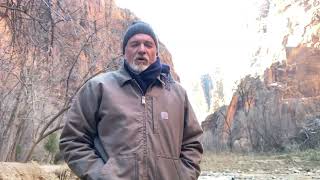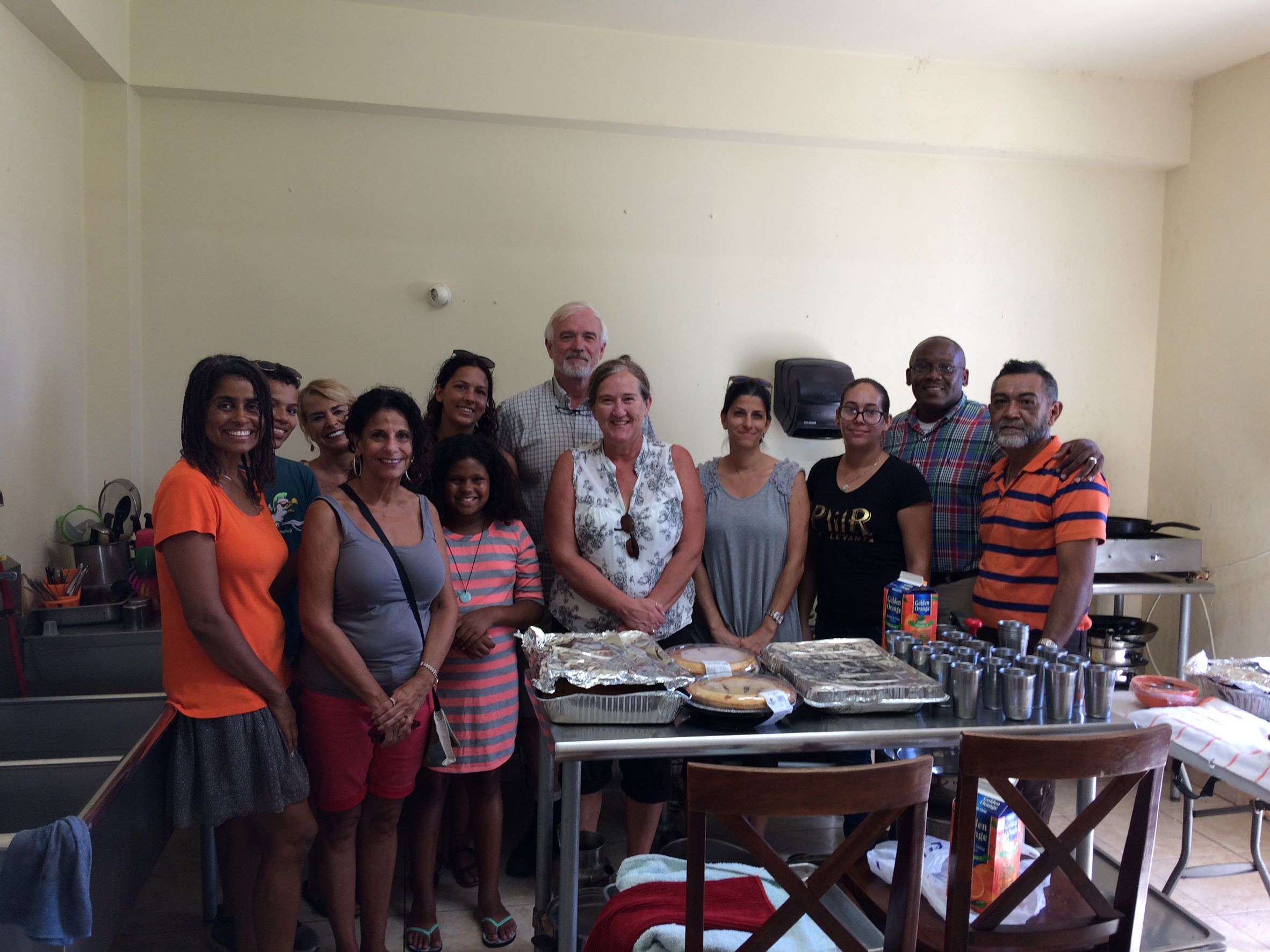
listen here the audio of this study https://www.youtube.com/watch?v=CehoRXePzBU&list=PL1a63TsBRKpW0rI1pvH8K0PQerOZ3io7c&index=5&ab_channel=Gracedevotionals
Good morning! Today we begin our study of the portions of the Gospels that we have designated G3: Luke 1:39-80, Matthew 1:18-25, and Luke 2:1-40. These texts have to do with the Birth of Jesus, His dedication in the Temple, and the family’s return to Nazareth. If you haven’t had the time to read through these texts, please take time now to refresh your memory.
We’ll begin with the passage found in Luke 1:39-80. In our study of this text, we’ll look closely at the three months that Mary spent with her relative Elizabeth and her husband Zechariah. Keep in mind that Mary is quite young, likely in her teens. Zechariah and his wife are much older. I’m not convinced we know their ages, but we will use the common belief that they were in their seventies.
Introduction:
In Luke 1:1-38, we read of the two encounters the angel Gabriel had with Zechariah and Mary, foretelling the births of John the Baptist and Jesus the Messiah. You will recall that Zechariah had difficulty believing that his and Elizabeth’s prayers were being answered. In response to his unbelief, he lost the ability to speak until his and Elizabeth’s son John was born.
Mary, unlike Zechariah, didn’t respond in unbelief. She only wondered how a young woman like her could become pregnant. It is interesting that she didn’t immediately think of her planned marriage to Joseph as the way such a thing might happen. Her response suggests there was a sense of urgency or immediacy in the angel’s message. If this was to happen very soon, she wondered how it could happen to her.
In response to that uncertainty, the angel gave her a promise; “The Holy Spirit will come upon you, and the power of the Highest will overshadow you. So, the Holy One to be born will be called the Son of God.” Gabriel also gave her a sign; “Look, even Elizabeth your relative has conceived a son in her old age, and she who was called barren is in her sixth month.” I think that phrase “she who was called barren” resonated with her, she’d heard it somewhere before. She understood then that this was something God would do through her. It would be something unique and had nothing to do with Joseph.
The way Gabriel addressed her speaks of Mary’s unique character as a young woman of God. She accepted God’s will for her life and could only wonder what it all might mean. We don’t know more about when or how Mary conceived of the Holy Spirit; we simply know it happened. I’m sure that was something Mary kept as her own memory. Keep in mind that this is Luke’s Gospel account, one that he composed through interviews with eyewitnesses. Luke tells us in 1:3 that he “carefully investigated everything from the beginning.” I can imagine the two of them sitting quietly in a room illuminated by candlelight; Mary is recalling these important moments while Luke is busy recording her words. I suspect he understood that some things were so personal and cherished that they must remain private.
1:39 In those days Mary got ready and hurried to a town in the hill country of Judah.
It is difficult for us to know how close a young couple in these days was to one another. Did Mary relate what had happened to Joseph? We will see that it took time and an angelic visitation for him to accept this as something truly unique and from God. Instead of dealing with this difficult subject with Joseph, we see Mary getting ready and hurrying to leave Nazareth. It is likely that Mary was already pregnant and very possibly experiencing morning sickness. It appears that she kept that to herself and let the difficult discussions with Joseph wait for another day.
The journey from Nazareth to the Hill Country of Judah was about 90 miles and it doesn’t appear that Joseph went with her. As I have eluded to, it seems Joseph didn’t understand that Mary was pregnant until she returned from this time away. It’s hard to imagine her traveling alone on a journey that could take at least 5 days. She may have joined a group of travelers, but we simply don’t know. We also don’t see any record of how her parents viewed what was happening. Indeed, it is interesting that her parents are never mentioned in the Gospels.
What we do know is that she got ready and hurried. You will recall that she had the knowledge that her relative Elizabeth was pregnant and that was somehow related to what God was doing in her body. Again, I am so impressed with Mary’s character and determination. The plan of God had put her on a journey she never could have anticipated. A less adventurous young woman might have just stayed at home, pulled the shades, and waited for things to develop. Instead, she packed up and hurried on to see the only other person she thought might understand what God was doing, Elizabeth. There is an important lesson here about trusting God’s plan, fellowshipping with others in that plan, and moving forward.
1:40-44 When Elizabeth heard Mary’s greeting, the baby leaped in her womb, and Elizabeth was filled with the Holy Spirit. In a loud voice she exclaimed… Each of us has a human spirit, that part of our nature that can be filled with God’s presence. For the believer, this is that place where God takes up residence in our lives, our point of contact with our Creator. In the Scriptures we see that there are things that please God (1 John 3:22). Our goal should be to pursue those things. We also read that we should not be conformed to this world system but be transformed such that we can test and approve of what is pleasing to God (Rom. 12:2, Eph. 5:10), and that when God is pleased, our spirit rejoices as well (Luke 1:47). Will that cause us to leap and shout from time to time, of course it will.
1:45 Blessed is she who has believed that the Lord’s word to her will be fulfilled. It was a determined desire to see what God was doing that took Mary to the hill country of Judah and Elizabeth recognized that as faith in action. Pay attention when you read the Word of God to things like the connection of believing and being blessed. All of us want to be blessed. That is probably a big part of why we accepted Jesus as our savior. Too many times we find ourselves wondering where the blessings are these days. It seems we’re not experiencing the blessings that seem a natural part of being a son or daughter of God. We understand that we are often called to trust God when we don’t feel anything. While that is true, I don’t believe our “normal” state shouldn’t be soldiering on.
Dear friends, we need to be careful with words like “believer” and “Christian”. Those have become nouns in our current day; they ought to be verbs. A believer is one who believes. A Christian is one who lives like Jesus. Mary believed God. She prepared herself and hurried on her way. She knew what God had promised and wanted to see and experience how it would be fulfilled. Like Mary, we need to participate in this life by seeking God (Matt. 7:7), studying His Word (2 Tim. 2:15), and engaging in that essential element of worshiping God in our human spirit (John 4:23-24). This is what turns born again children of God into believers and Christians (1 Tim. 5:6-7). This sort of active faith won’t come easy to the natural man. Indeed, it will scare him or her to death, and so should it be. Following God takes us to the Cross every time.
1:46-56 Then Mary said… This is Mary’s Song, known as the Magnificat for the first word in the Latin translation. It is Mary magnifying the Lord. The Scripture abounds with examples like this. It is like a Psalm of the New Testament. The Magnificat is an important part of the liturgy of the Catholic, Eastern Orthodox and Anglican traditions but it is more than mere liturgy. It speaks to the value of knowing our personal statement of faith. We read in 1 Peter 3:15, “but sanctify Christ as Lord in your hearts, always being ready to make a defense to everyone who asks you to give an account for the hope that is in you, but with gentleness and respect” (NASB). I think this is what Mary is doing in the Magnificat. Much has been written about this ancient form of poetry due to its lyrical form, structure, and content. I encourage you to take some time and just read it and try to get a sense of how Mary understood what God was doing. If you want to investigate this more closely, there are plenty of resources on-line.
If your Bible includes references to other areas of Scripture that may have inspired Mary’s Song, you will likely be directed to Hannah’s Prayer of Thanksgiving in 1 Samuel 2:1-11. Mary’s song seems to follow that pattern. You may recall the phrase “she who was called barren” from earlier in our study. This sounds a lot like Hannah’s story found in 1 Samuel chapter one. This makes me wonder about Mary’s experiences during her three months with Elizabeth and Zechariah. You will recall that Elizabeth and Zechariah were part of a priestly tradition, likely well educated and very familiar with stories like that of Hannah. It would be reasonable for Elizabeth to have taken comfort in Hannah’s story. For Mary to spend several months with such a family probably changed her life. Also, remember that only Elizabeth was able to speak during that time. It is amazing how God honors his daughters. The New Testament has many examples of women being used by God to teach others (Titus 2:3-5; 1 Timothy 3:11; Romans 16:1-7). It is also an invaluable lesson for a young person to spend time with mature believers. As I said earlier, I think this time changed Mary’s life.
As I think about this time, I can imagine Mary as a young woman seeking after God and trying to imagine having a family of her own. Did Hannah’s story take up residence in her thoughts as she pondered the plan of God in her life? It seems that the Hannah’s song became a pattern for her own and to some degree for that of Zechariah which we’ll see in a few minutes. As I mentioned before, Mary’s song tells her story. Let’s look at the basic structure of ideas in that song:
- Her soul magnified the Lord and her spirit rejoiced in God as her Savior (1:47),
- She saw clearly what He had done for her and for all who receive Him (1:48-50),
- She understood how God’s plan determines events in this world (1:51-53),
- She trusted in the promises. If God had been faithful to Abraham because of his faith, He would be faithful to her (1:54-55).
A few things in her worldview are worth mentioning here. She spoke of her “humble state” and understood the emptiness that awaits the rich and powerful. She could see the comfort and fulness God brings to the poor and hungry in this life. She said, “He has filled the hungry with good things but has sent the rich away empty”. She doesn’t see God doing this only in some future existence but “He has filled the hungry with good things” and “He has sent the rich away empty.” Faith that is genuine sees things that way. Hebrews chapter 11 is all about that sort of faith. It is “the assurance of what we hope for and the certainty of what we do not see” (11:1). It is the condition for approaching and pleasing God (11:6). It sustains us even when we haven’t yet seen our hope fulfilled (11:13). Quite literally, the world isn’t worthy of such people (11:38a). Having gone before us, they look down and know that we will all be made perfect together (11:40; 12:1). Is Mary right now in the presence of God looking down upon us as we consider such things? I think she is.
1:57-66 “When the time came for Elizabeth to have her child, she gave birth to a son.” This story gives us an uncommon view into the lives of people in this time. People lived in community in a very different sense than we do today. Homes were smaller and closer together. People’s lives were more intertwined. “Her neighbors and relatives heard that the Lord had shown her great mercy, and they rejoiced with her.”
“On the eighth day, when they came to circumcise the child, they were going to name him after his father Zechariah (Luke 1:59). The text speaks of the custom of circumcision on the eighth day. We read that “they came to circumcise the child.” This was done at home and was a celebration of the life of a Hebrew boy. He became part of a people on that day, and everyone was reminded of the spiritual message that we all need to hear that our hearts should be circumcised before God (Deut. 10:16, Rom. 9:28-29).
There is also an interesting dynamic that was going on in Zechariah’s home. For a little more than nine months, he had been unable to speak. One can only imagine how he explained all that had happened in his encounter with Gabriel to his wife Elizabeth. I do wish I had been there to see his wife’s looks as she wondered what had happened to the old guy. Did he begin with an ancient version of charades? How many times did he need to explain his encounter with Gabriel before she settled on the possibility that he wasn’t totally insane? By now, six months had passed and guess who shows up? Wow, this was just getting interesting! What an experience this must have been!
1:63 “Zechariah asked for a tablet and wrote, ‘His name is John.’ And they were all amazed. Immediately Zechariah’s mouth was opened, and his tongue was released, and he began to speak, praising God.” What a special moment this must have been for Zechariah. May I suggest that if you’ve ever been disciplined by God such that with all your learning you haven’t been able to speak for nine months and your wife is telling everyone how things will be, when circumstances allow you to express yourself… agree with her! Your time to speak will come.
Chapter one of Luke ends with Zechariah’s song. It begins with the great things God has done. It continues with the confidence that He has spoken through His prophets. It acknowledges salvation, mercy and the promise made to Abraham. It anticipates deliverance, holiness, and righteousness in a practical and real sense in this world and recognizes the essential role John will plan in all of this.
John is said to be the one who will “go on before the Lord to prepare the way for Him.” We are told “he will give to His people the knowledge of salvation through the forgiveness of their sins.” A Gospel message without a clear sense of the need for salvation through the forgiveness of sins is quite far from the plan of God. It is in the recognition of sins that we understand the need to be saved. In a real sense we are like John in this life. We make it clear that people are lost and point them to the One who can save them from that state. If our message is “your life could be better,” it is not the Gospel. Zechariah described it perfectly; “because of the tender mercy of our God, by which the Dawn (morning star, the sun) will visit us from on high, to shine on those who live in darkness and in the shadow of death, to guide our feet into the path of peace.” The concept of being in darkness and Christ brining light as the sun does every morning is something we will see more of as we progress through the Gospels. That happens because of the tender mercy of God. It is a visitation from on high. It is the beginning of the path of peace. A better outcome in life doesn’t exist. It is the only way.
1:80 “And the child grew and became strong in spirit; and he lived in the wilderness until the time of his public appearance to Israel.” There is something to be said about good preparation here. There is a process of growing and becoming strong in spirit before one makes a “public appearance.” Isaiah 48:10 speaks of a process of refining that happens in the furnace of affliction. I suspect that without that time we are not of much use to God in this world. The Word of God has a lot to say about the impurities that must be separated from gold and silver before it can serve its purposes (Deut. 4:20, Psalm 66:10, Isaiah 1:25-26). In that process we can have confidence like Job; “Yet He knows the way I have taken; when He has tested me, I will come forth as gold.” That process may mean different things in different situations. It may not be a pleasant experience. Yet, we know that it must take place.
Thank you for considering these things with us today. In the next parts of this study of the events surrounding the birth of Jesus, we will look at Joseph’s experiences (Matthew 1:18-25), Jesus’ birth in Bethlehem (Luke 1:1-20), His dedication in the Temple (Luke 2:21-38), and the family’s return to Nazareth (Luke 2:39-40). To study these events carefully takes time and effort but has a great reward for the heart that pursues the knowledge of God. Again, thanks for being part of this!
You can see the study that continues in this link: G3b The Birth of Jesus
You can also see and comment on them on your social networks:
https://www.facebook.com/profile.php?id=100073097150614,
https://www.facebook.com/gracedevotionals1
https://www.instagram.com/gracedevotionals/






0 Comments